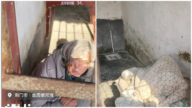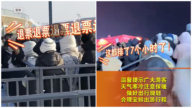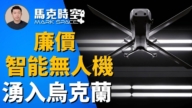【新唐人2014年05月08日訊】最近,大陸媒體曝光了一起發生在四個月前的網絡警察受賄案。海南海口市的一名網警大隊長,利用監控網絡輿情的工作便利,先後數百次為外地網警刪除當地政府機關和官員的「負面帖子」,收受賄款近百萬元。案件曝光後,引發了外界對大陸輿論監控的關注。同時,網警受賄進行「有償刪貼」究竟是個人行為,還是背後有更大的黑手?也引發了輿論質疑。
據大陸媒體報導,原海口市公安局網警支隊一大隊副大隊長魏一寧因為受賄,在去年12月20號被海口市龍華區法院一審判處有期徒刑10年。令人吃驚的是,案件中行賄者竟然是來自全國6個省11個地市公安機關的11名網警。
報導中說,11名網警賄賂1名海口網警,辦的全是「公事」,基本上都是關於各地方政府和官員不希望被看到的信息。它們以「維護政府形象」為藉口,找到魏一寧幫忙「有償刪貼」。
幾年來,11名網警共計向魏一寧行賄高達70多萬元。其中,行賄最多的是來自湖北黃岡市公安局的網警彭某,他在短短一年的時間裏,向魏一寧行賄148次,共48萬多元。
前大陸《百姓》雜誌主編黃良天:「像這種事情每天都在發生著,我們在中國媒體界或者報界有個行話,叫做『有償不新聞』。就是我給你報出本來很有新聞價值的東西,老百姓也喜歡看,但是對當事人士途上有影響,那麼你『有償』,我就不新聞了。這個很普遍的一個現象,不但那些網警,報社的社長、媒體也幹這事兒啊!來公關一下,我就不給你報了。」
為何外地網警要向海口市網警副隊長行賄?據了解,中國最具影響力、最受弱勢群體歡迎的兩大論壇——《天涯社區》和《凱迪論壇》的總部,都設在海口。海口市網警對這兩個論壇的網帖擁有輿情監督、情報收集和信息處置權。對於網站來說,網警就是它們的頂頭上司,只要網警一個指令,哪怕是隨便找個理由,網站有再多的不滿和質疑也不敢多問,刪帖令最多在十分鐘之內就得執行。
有證據顯示,魏一寧利用海口市公安局網警的公共賬號,向《天涯》、《凱迪》發送「處置指令」,完成了280多次「有償刪帖」。
雖然這起利用輿論監控權受賄的腐敗案,最終結果是行賄的網警被曝光,受賄的網警被判刑,雙方都罪有應得。但有媒體評論指出,行、受賄的網警其實都是「替罪羊」。
評論質問,對於行賄方來說,那些動輒數十萬的「刪帖費」是誰出的,到底是哪些官員不願意看到「負面信息」,他們在非法刪帖中扮演了甚麼角色?為何沒有追究這些官員的相關責任?這些問題,都值得深思。
另一方面,很多人將責任歸咎於假公濟私的執法網警、不負責任的網站管理人員以及以權謀私的喉舌媒體機構,卻忽略了作為媒體監管者的宣傳部門,才是真正的後臺老闆。
黃良天:「它有的錢就直接送到(宣傳)主管部門,主管部門給你打電話,它拿到錢就直接命令你不能登(報),你就登不出來。」
大陸《泡泡網》的評論指出,在輿論監控這塊美味的大蛋糕中,網警分到的只是很小的一點,大部分利益屬於宣傳部門。因為宣傳部門的權力有兩個特點:一是不受制約,二是黑幕化。哪怕是中共組織內部,也幾乎沒有任何機制來對它制約和修正。
黃良天:「它(中共)那個所有的禁令都是有來頭的,或者保護一些國家機密的權力,或者哪個黨和國家領導人的權力、微信甚麼之類的禁令。那更多的是利益,我當《百姓》總編輯的時候,就經常接到中宣部電話,後來我就問它們(中宣部),我說你是不是收他們錢了?我沒登你怎麼知道我要登?而且還保護到縣一級。0634對方就掛電話了,就怕了。」
大陸資深媒體人,前《百姓》雜誌主編黃良天指出,網警受賄案之所以能被曝光,有可能是負責「刪貼」的網警與背後的宣傳部門分贓不清造成的。
採訪編輯/張天宇 後製/李勇
Internet Police Bribe or Publicity Organ Division of Spoils?
A bribery case involving Internet police four months ago was
recently revealed.
An Internet policeman of Haikou City, Hainan Province, received
bribes of nearly one million yuan for deleting hundreds of
posts negative to the image of local governments.
Was the bribery due to personal misconduct?
Could there be pushing hands behind the bribery?
The following is some of the public opinion.
Wei Yining was a former Internet police captain of Haikou
Municipal Public Security Bureau.
He was sentenced to 10 years imprisonment last Dec. 20 for
bribery.
What was surprising about the bribery case was that, involved
in the case were 11 bribers, also Internet police from 11 public
security bureaus of six provinces.
Chinese media reported that the 11 police had bribed the
Haikou police on “official" business, i.e., to delete unwelcome
information for local governments and officials.
In the name of “maintaining the image of government" they
paid Wei Yining to do the job.
These 11 Internet police had paid Wei a total of 700,000
yuan in a year of work.
An Internet policeman, in particular from Huanggan City of Hubei
had bribed Wei 148 times with a total pay of 480,000 yuan
within a year.
Huang Liangtian, former editor of Baixing Magazine: It
happens all the time.
In China, there is a slogan in the media industry, “paid, no news".
That means, a piece of news could be very worthwhile to the
public but affect the career of the entity.
So, if you pay, then there’ll be no news. This is very common.
it’s not just the Internet police, newspapers and media would
do the same.
Do some public relations, then there’ll be no report."
Why are Haikou City police in particular bribed? It is known
that the most influential social media on behalf of the most
vulnerable groups, www.tianya.cn and club.kdnet.net, are
located in Haikou.
The Internet police at Haikou are in charge of monitoring,
intelligence gathering and information disposition of these
two Web sites.
Under Haikou police instruction, posts will be deleted in
10 minutes with no questions asked.
Evidence showed that Wei Yining had used the Haikou
Municipal Public Security account to complete 280 “paid"
deletions at both Web sites.
Although the Internet police involved in the bribery case were
exposed and sentenced for manipulating censorship, some
media commented that the police were just the “scapegoats."
Comments asked who paid for the tens of thousands of
“deletion fees"?
Who were the officials that don"t want to see the “negative" posts?
What were their roles in the illegal deletion of the Internet posts?
Why weren"t they being held responsible?
While blaming the Internet police and the Web site managers
for abusing their authority, many people also pointed out
that the Publicity Department, the media regulator, is the real
culprit behind the case.
Huang Liangtian: “Sometimes the money was directly sent to
the Publicity authorities, who will just call and instruct not to
publish, then that was it."
A commentary from www.PCPOP.com indicated that in the big
pie of censorship, Internet police only share a small piece.
The majority of it went to the Publicity organ, which has two
specific authorities: One is that it’s not restricted, and the
other is that it’s hidden.
Any internal organ of the CCP has no control or mechanism
against it.
Huang Liangtian: All of the orders to delete came from some
authority or (another), in the name of state secrets, the security of the
Party or the leadership.
The majority of them were for the sake of personal interest.
When I was the chief editor of Baixing Magazine, I often
received phone calls from the Publicity Department.
One time I asked if they had taken bribes. How do you
know what I would publish?
That scared them, so they just hung up.
Former chief editor of Baixing Magazine, Huang Liangtian
analyzes that exposure of the Internet police bribery case was
very likely due to the unclear division of spoils between the
Internet police and the Publicity Department.
Interview & Edit/zhang tian yu Post-Production/Li Yong





























